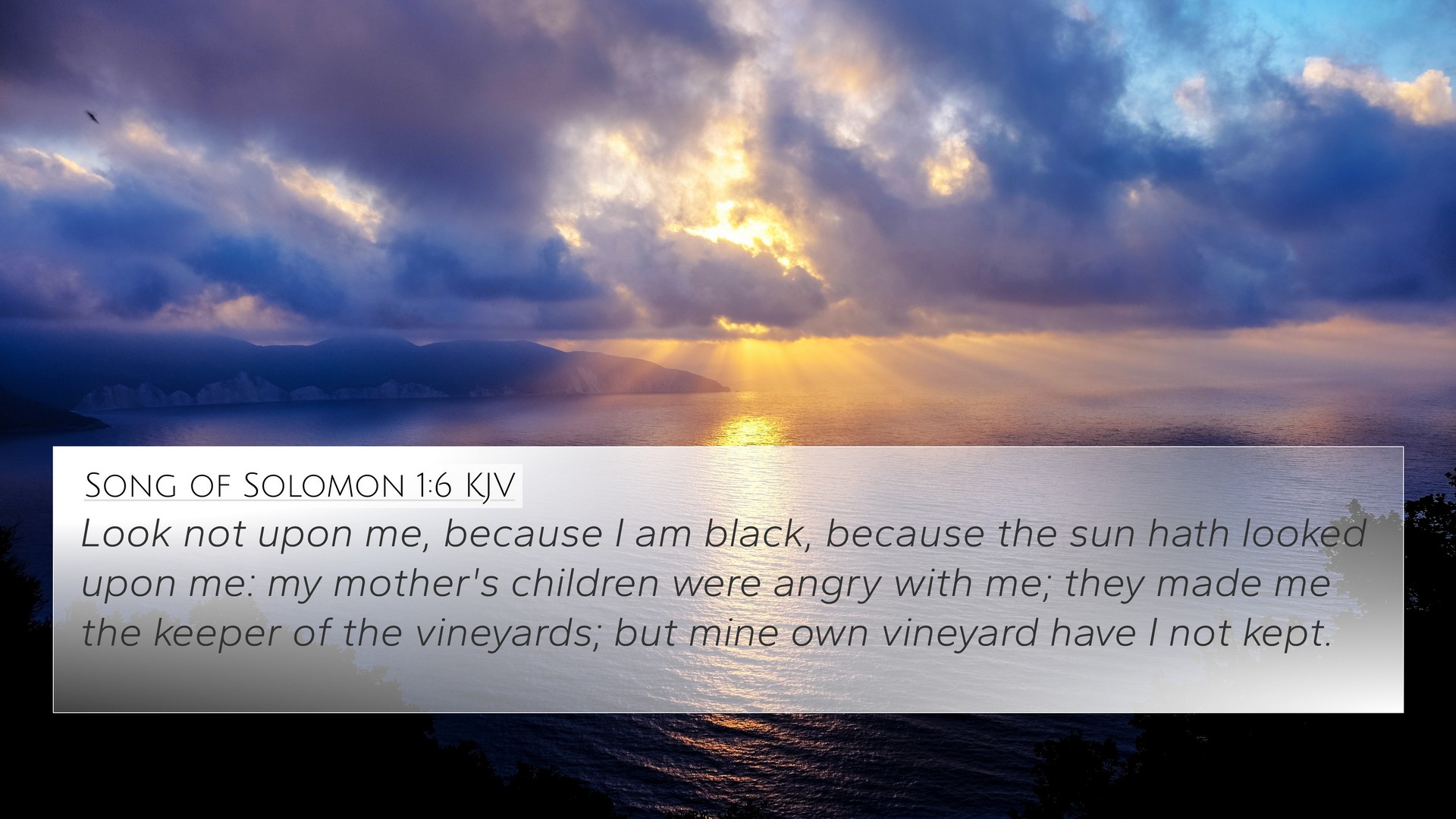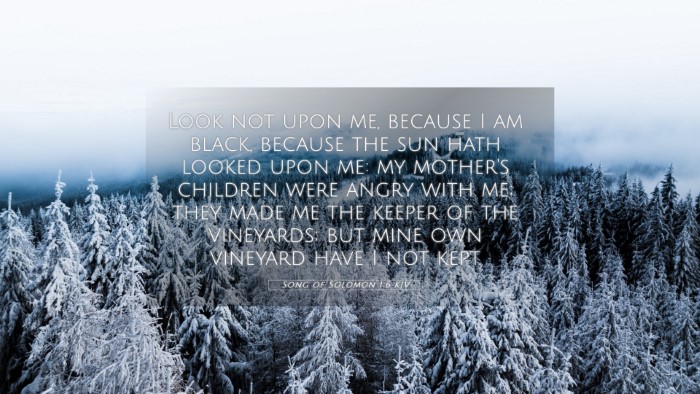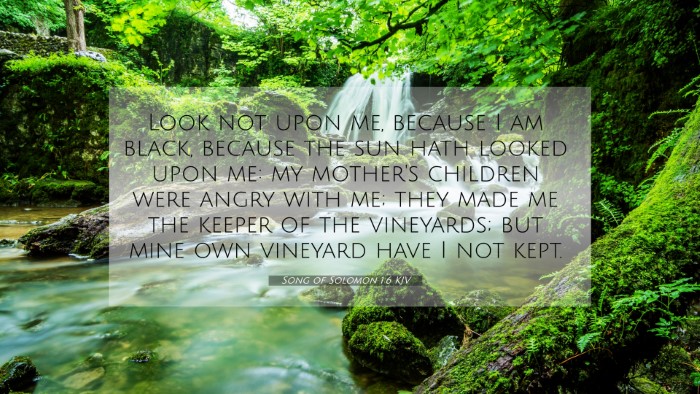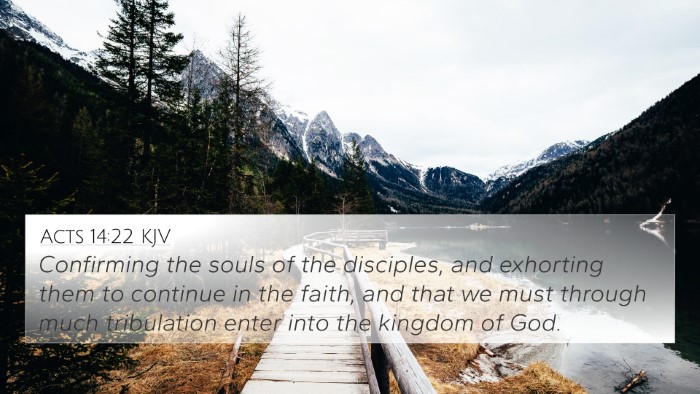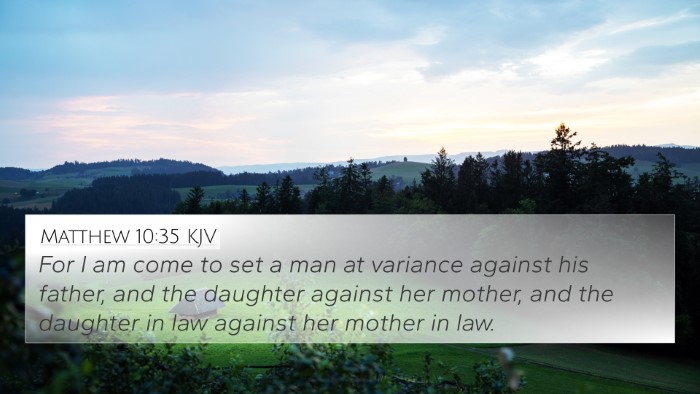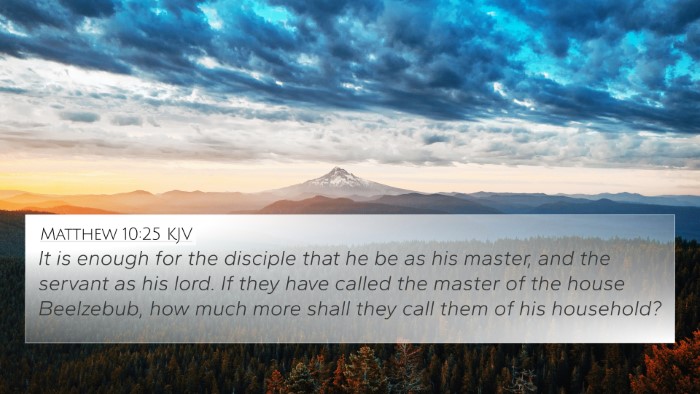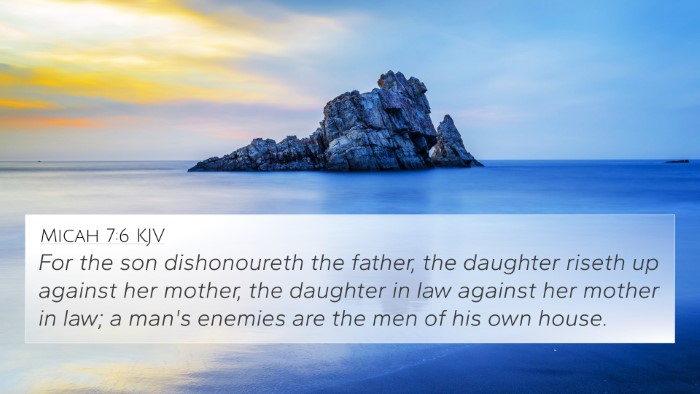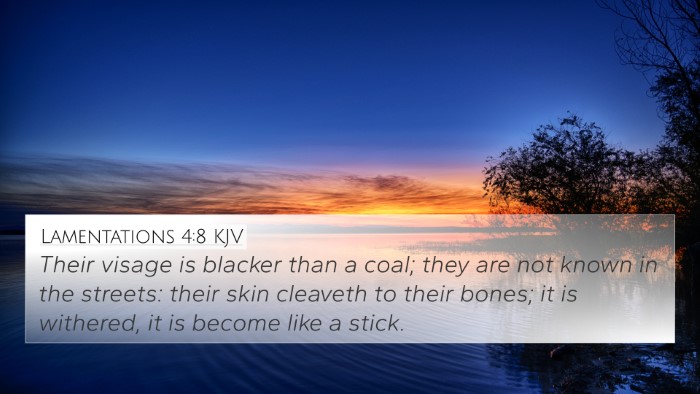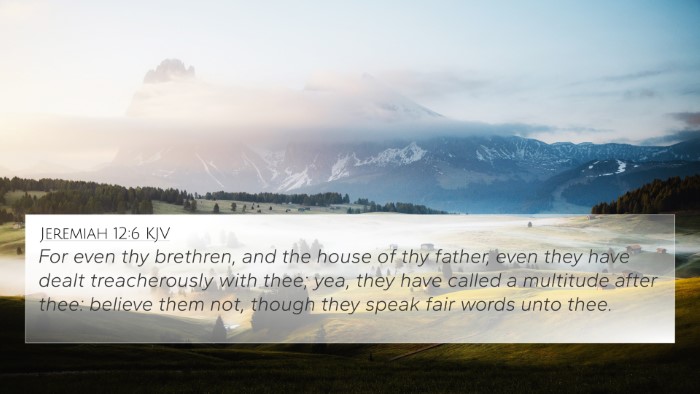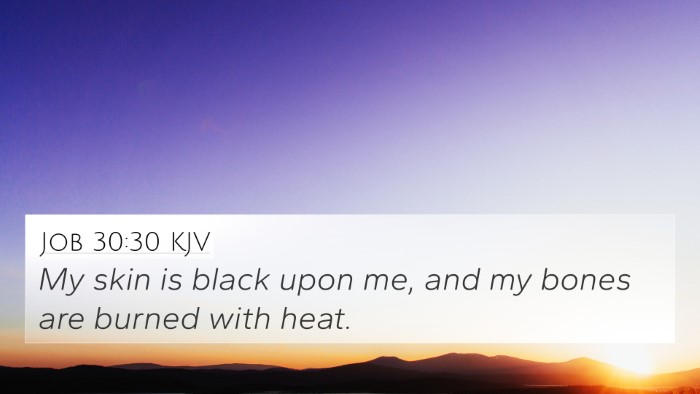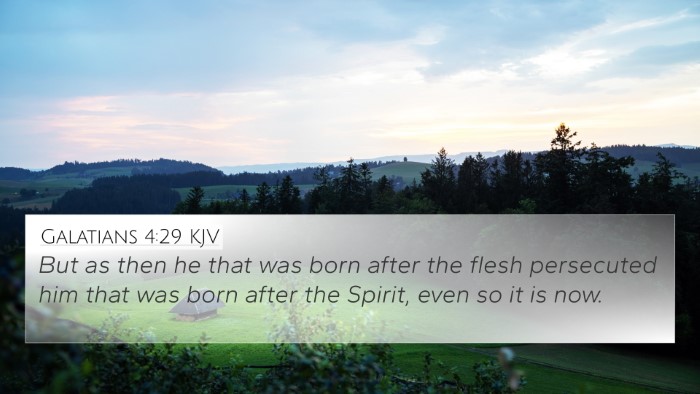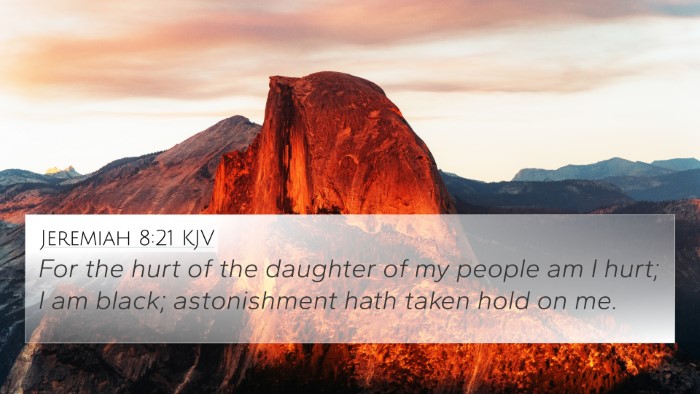Understanding Song of Solomon 1:6
Song of Solomon 1:6 states:
"Look not upon me, because I am black, because the sun hath looked upon me: my mother's children were angry with me; they made me the keeper of the vineyards; but mine own vineyard have I not kept."
This verse is rich with emotional depth and speaks to various themes such as identity, social status, and personal neglect. Below is a summary of insights from notable public domain commentaries.
Verse Analysis
- Matthew Henry's Commentary:
Henry emphasizes the metaphorical implications of the speaker's lament about being "black." This reflects both a physical and emotional state, indicating the speaker feels overwhelmed and undervalued. Henry suggests that the sun symbolizes life's challenges that lead to weariness and a perception of one's shortcomings.
- Albert Barnes' Notes:
Barnes addresses the societal aspects reflected in this verse. He notes that the character of the woman acknowledges her external appearance, considering the societal implications of being 'black' as a mark of labor and exertion. Barnes highlights the significance of familial relationships and the expectations placed upon individuals within these structures.
- Adam Clarke's Commentary:
Clarke offers a historical analysis of the verse, linking it to the cultural context of the time. He explores the concept of being 'the keeper of the vineyards' as a metaphor for responsibilities that overshadow personal needs and nurturing. His interpretation reflects a broader theme of self-care versus societal obligations.
Thematic Connections
The verse raises various thematic areas worth exploring further:
- Identity and Self-Perception: The speaker's struggle with her appearance leads to a deeper exploration of how individuals perceive themselves amidst societal expectations.
- Social Roles and Responsibilities: The obligations imposed by family and society often lead to neglect of one’s personal well-being.
- Endurance amidst Trials: The reference to the sun introduces themes of hardship and the resilience needed to confront life's challenges.
Cross-References
Song of Solomon 1:6 links to several verses throughout Scripture, illustrating inter-Biblical dialogues:
- Genesis 29:17: A reference to Rachel being "beautiful and well-favored," highlighting societal standards of beauty.
- Proverbs 31:30: **"Favor is deceitful, and beauty is vain: but a woman that feareth the LORD, she shall be praised."** This emphasizes that true evaluation goes beyond physical appearance.
- Isaiah 53:2: Connecting the theme of suffering with "no beauty that we should desire him," pointing toward the importance of inner worth.
- Mark 4:16-17: Discusses those who receive the word superficially, paralleling neglect of inner spiritual life.
- Luke 10:40: Reflects the struggle between responsibilities and personal devotion, comparable to the speaker's plight.
- 1 Peter 3:3-4: **"Whose adorning let it not be that outward adorning of plaiting the hair, and of wearing of gold, or of putting on of apparel; but let it be the hidden man of the heart."** Another biblical perspective on the value of inner beauty.
- Galatians 3:28: Speaks to the equality in Christ's eyes, transcending social and physical judgments.
- Romans 12:2: Reinforces the call to transformation beyond worldly appearances and judgments.
- Matthew 6:26: **"Behold the fowls of the air: for they sow not, neither do they reap, nor gather into barns; yet your heavenly Father feedeth them. Are ye not much better than they?"** This illustrates God's care regardless of how one appears.
- Philippians 4:13: **"I can do all things through Christ which strengtheneth me,"** tying back to the theme of empowerment amidst personal struggles.
Practical Applications
The insights from Song of Solomon 1:6 can apply to various aspects of life:
- Preparing Sermons: Use the thematic aspects to discuss self-worth and societal pressures in modern contexts.
- Encouraging Personal Reflection: Encourage individuals to look inward and assess how external pressures affect their self-esteem.
- Facilitating Bible Studies: Utilize comparative Bible verse analysis to explore the interconnectedness of Scripture regarding self-identity and societal roles.
Conclusion
Song of Solomon 1:6 encapsulates a rich tapestry of identity, struggle, and the quest for inner beauty amidst societal expectations. By incorporating various biblical cross-references, one can further understand the complexities of the human experience as portrayed in Scripture.
